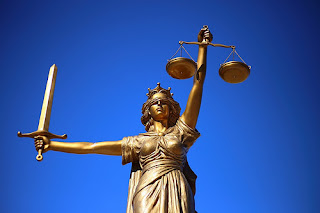Whether or not you believe motive is important to your case,
motive is everything to jurors. In the absence of your attributing motive, the
jurors will do so, and the motive they assign may not be favorable to your client.
This is particularly true in business cases, where the human
heart may not seem to play as large a part. For example, a case involving
copyright infringement, fraud, or breach of contract, may lead the attorney to
focus too narrowly on the legal issues. They forget to bring to light the bigger
human picture, yet that is the picture the jurors will focus on: Why was the
copyright issued in the first place? Who invented the whatever, what did it
mean to them, to their business, their life? How did these other people come to
be involved? What’s the story of their connection, their hopes and dreams when
they entered the relationship? Why did it fall apart? Why, why, why is a
question the jurors will ask over and over.
When you answer these more human questions for the jurors,
your case – and your client – become a living, breathing matter of importance
to the jurors. It appeals to their hearts and minds in a way that allows them
to care. Jurors must care about your client, about your interpretation of the
facts, if you are to prevail. Giving them motive goes a long way towards
helping jurors care.



